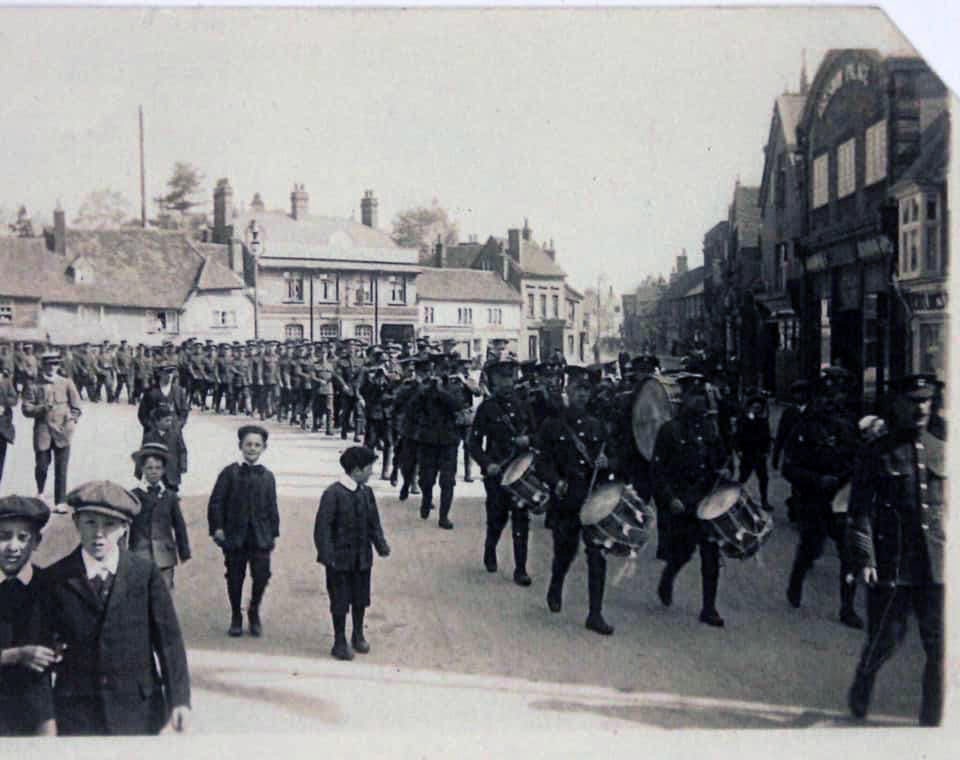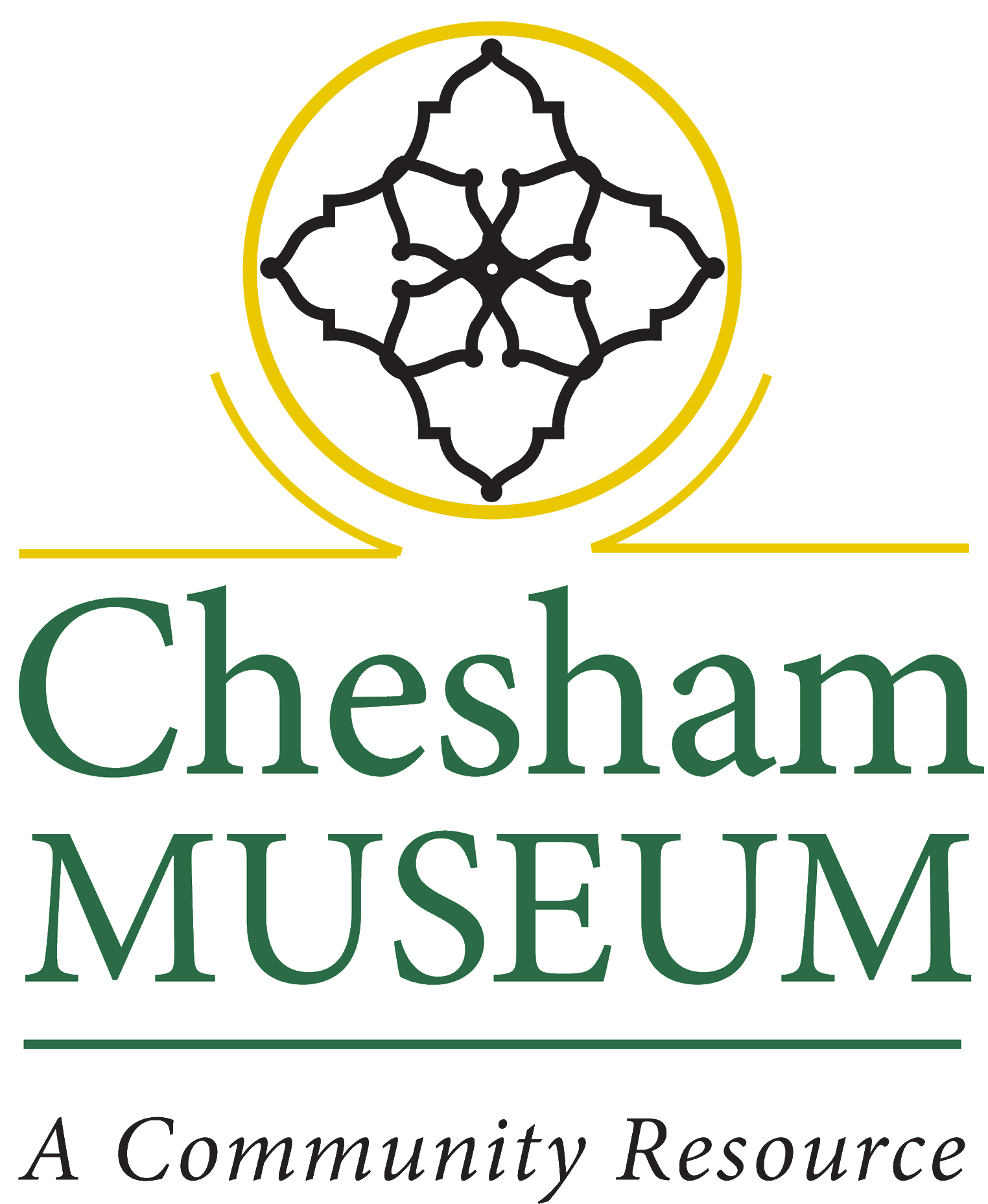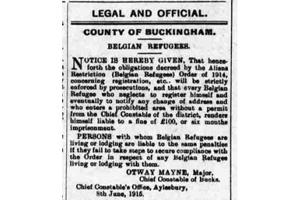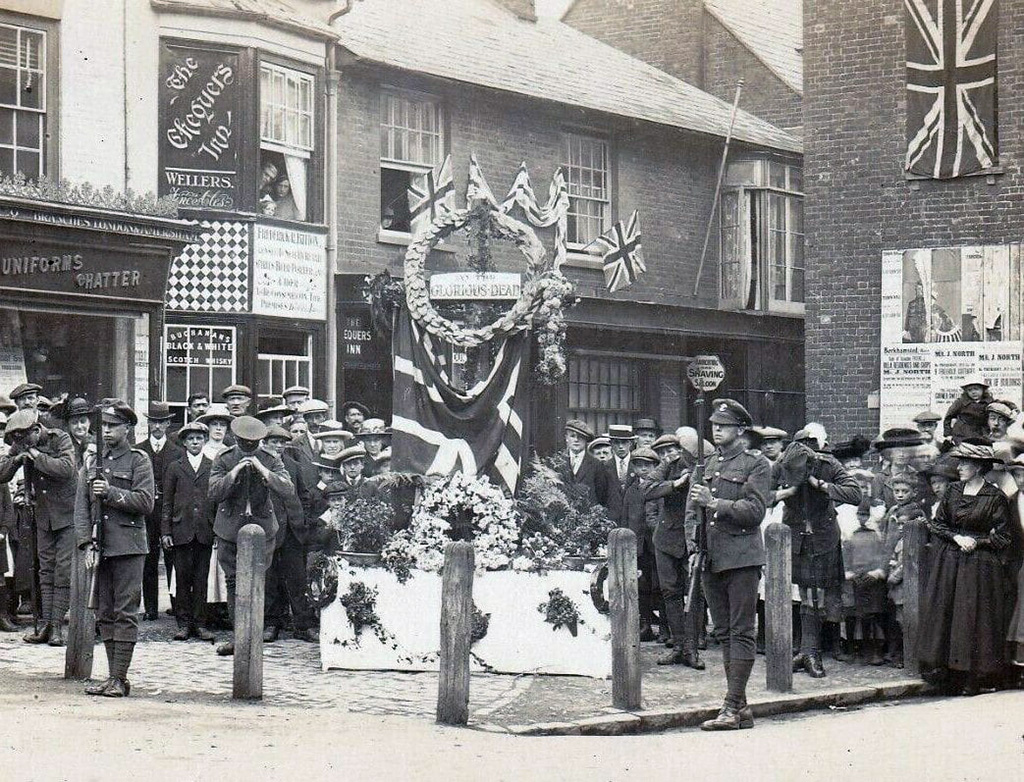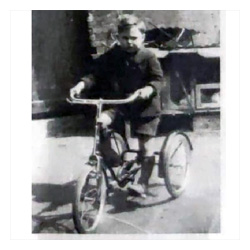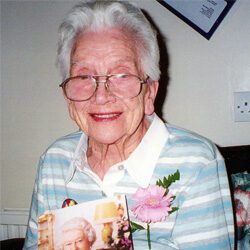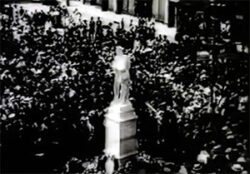Chesham in World War 1
How war affected Chesham
View Chesham in World War 1 by:
War was declared by the British on Germany on 4th August 1914. The impact on Chesham was not immediate, apart from changing the pubs’ closing time to 8.30 pm!
Many troops were stationed in and around the town and training took place in the Park and on the Moor. The King’s Royal Rifles trained here; and a railway line was laid across the Moor by the Northumberland Fusiliers, whilst the Royal Engineers practiced bridge building across Skottowe’s Pond in Lowndes Park.
By the end of 1915, some Council works had had to be postponed, strict economy measures were put in place and street lighting was switched off. Refuse collection was reduced to once a week. Public baths were only open 4 days a week with women and children sharing.
A Food Control Committee was set up and temporary allotments were created on which seed potatoes supplied by the Council could be sown. Rabbit, pig and poultry keeping were encouraged and an Infant Welfare Centre was opened to provide milk for babies.
Chesham did not see many evacuees in World War One but one famous family who stayed at Germains in Fullers Hill for a time were Prince and Princess Andrew of Greece, the parents of Prince Philip, Duke of Edinburgh.
On the outbreak of war, however, many refugees fled Belgium for Britain. 40,000 refugees had arrived by Christmas 1914 and these were dispersed throughout the country, Chesham taking a number of them.
Moreton’s engineering works in Springfield Road was turned into a Food Production Department managed by the War Agricultural Department and distributed agricultural labour, feed, fertiliser and agricultural machinery to assist farmers to grow as much produce as possible.
Although the Armistice was signed on 11th November 1918, the war did not formally end until the peace treaty with Germany was signed on 28th June 1919, and because of this, official peace celebrations did not take place until August 1919.
Chesham had an entire day of celebrations on 5th August 1919 during which two Victory Oaks were planted in Lowndes Park, where they can still be seen growing today.
Refugees in Chesham
Chesham gave home to many Belgian refugees from the start of the war in 1914. You can learn more about that in our blog Belgian refugees in Chesham
